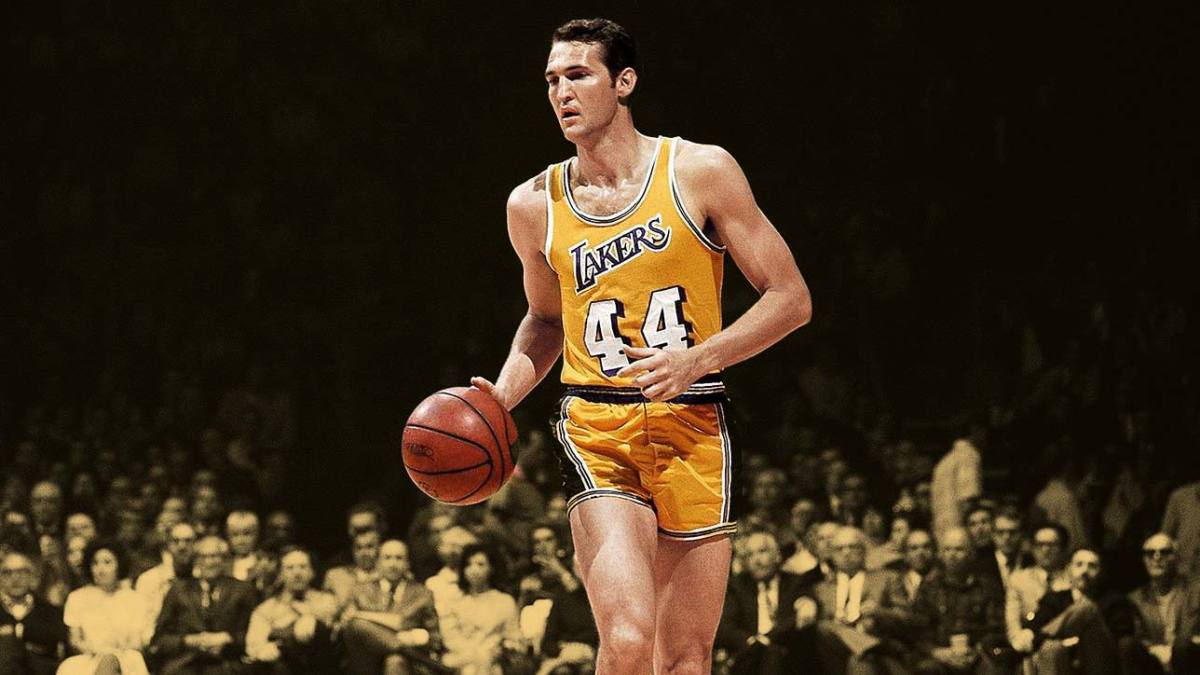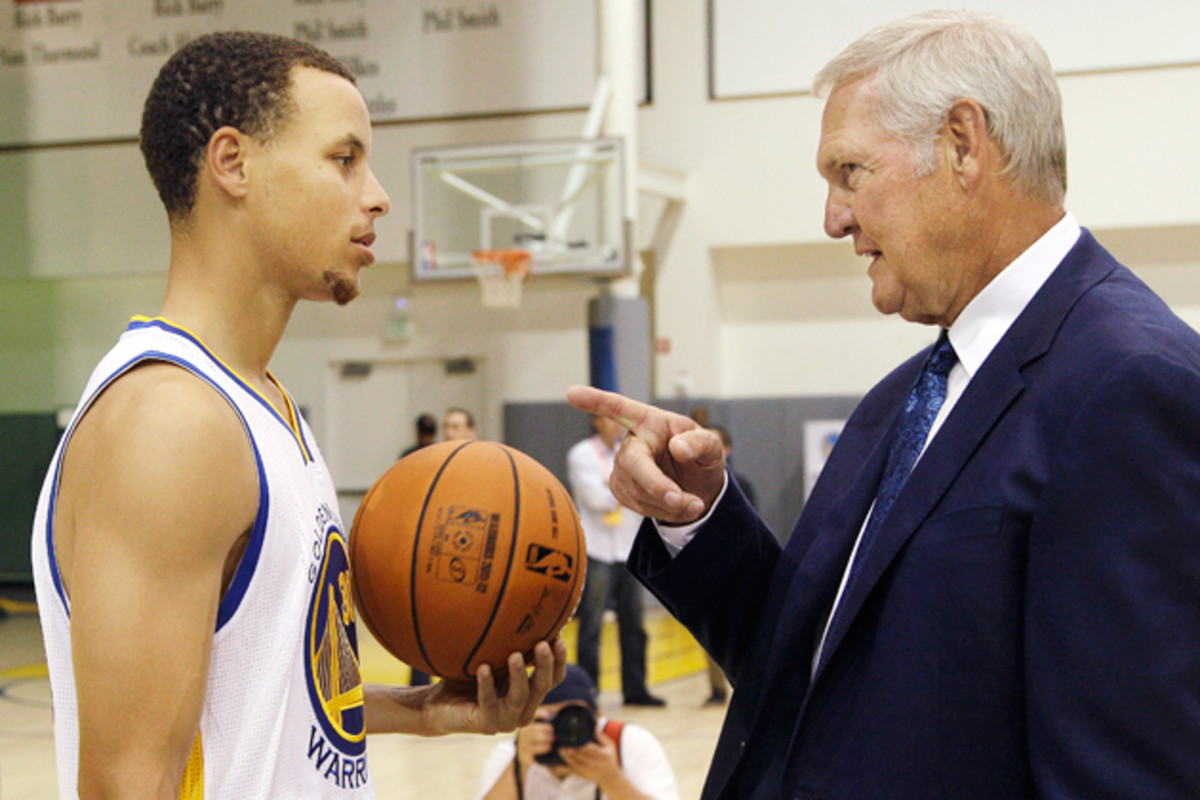Jerry West (Part 3)
Jerry West (Part 3)

In the 1969–70 NBA season, Jerry West once again showcased his leadership and scoring prowess for the Los Angeles Lakers. With Wilt Chamberlain sidelined for most of the regular season due to a knee injury, West assumed a larger role, leading the league in scoring with an average of 31.2 points per game. He also contributed 4.6 rebounds and 7.5 assists per game, earning him All-Defensive First Team honors and another All-NBA First Team selection.
Despite Chamberlain's absence, the Lakers managed to win 46 games and advance to the 1970 NBA Playoffs. After narrowly defeating the Phoenix Suns in seven games and sweeping the Atlanta Hawks, the Lakers faced the New York Knicks in the NBA Finals. The series was highly competitive, with both teams trading victories in the first four games.
In Game 3 of the Finals, West delivered one of the most memorable moments in NBA history by sinking a miraculous 60-foot shot to tie the game. However, despite his heroics, the Lakers fell short in overtime, and West suffered a hand injury in the process. He bounced back in Game 4 with a stellar performance, scoring 37 points and dishing out 18 assists to secure a victory for the Lakers.
Game 5 proved to be a turning point in the series, as the Lakers squandered a double-digit lead and allowed the Knicks to mount a historic comeback. Despite West's valiant efforts, including a 31-point, 13-assist performance in Game 6, the Lakers ultimately lost the series in seven games.
In the following season, 1970–71, the Lakers faced adversity once again with the loss of Elgin Baylor to a career-ending Achilles tendon injury. West himself suffered a knee injury that sidelined him for the entire season. Despite the setbacks, West continued to contribute on and off the court, averaging 26.9 points and 9.5 assists per game. However, the Lakers fell short in the playoffs, losing to the Milwaukee Bucks in the Western Conference finals.
Before the 1971–72 NBA season, Jerry West, despite his stellar career, was contemplating retirement due to frequent injuries and the disappointment of past losses. However, the hiring of former Celtics star Bill Sharman as head coach rejuvenated the Los Angeles Lakers. Under Sharman's leadership, the team adopted a fast-paced style of play and a focus on tough defense.
The 1971–72 season proved to be historic for the Lakers, as they embarked on an unprecedented 33-game winning streak, ultimately finishing with a then-record 69 wins in the regular season. West played a pivotal role, averaging 25.8 points and a career-high 9.7 assists per game. He earned All-Star, All-NBA, and All-Defense First Team honors and was named the MVP of the All-Star Game.
In the playoffs, the Lakers swept the Chicago Bulls and defeated the Milwaukee Bucks in six games to advance to the NBA Finals against the New York Knicks. Despite struggling with his shooting in the early games, West helped the Lakers tie the series and ultimately clinch the championship in Game 5. It was West's first NBA title, and despite his own subpar performance, he credited his teammates for their collective effort.
The following season, West transitioned into more of a playmaking role as Gail Goodrich took on the scoring responsibilities. Nevertheless, West remained a key contributor, averaging 22.8 points and 8.8 assists per game. The Lakers won 60 games and reached the NBA Finals once again, facing the Knicks. Despite West's efforts, including a 24-point performance in Game 1, the Lakers fell short, with West hampered by hamstring injuries.
The 1973–74 season marked West's final year as a player. Despite being 36 years old and limited by injuries, he still managed to average 20.3 points and 6.6 assists per game. However, contract disputes with Lakers owner Jack Kent Cooke led to West's decision to retire. Despite his desire to continue playing, West felt deceived by the organization and chose to leave rather than renegotiate his contract. At the time of his retirement, West had scored more points for the Lakers than any other player in franchise history.
Jerry West's tenure as the general manager of the Los Angeles Lakers was marked by his instrumental role in building and sustaining the team's success. After working as a scout for three years, West became the general manager before the 1982–83 season. He played a key role in constructing the Lakers dynasty of the 1980s, known as Showtime, which secured five NBA championships (1980, 1982, 1985, 1987, and 1988) for Los Angeles.
Under West's guidance, the Lakers assembled a powerhouse team coached by Pat Riley and featuring iconic players such as Magic Johnson, Kareem Abdul-Jabbar, and James Worthy. This formidable lineup dominated the NBA and brought multiple titles to the Lakers franchise.
In the early 1990s, the Lakers experienced a downturn, but West successfully rebuilt the team around emerging talents like Vlade Divac, Cedric Ceballos, and Nick Van Exel. Their resurgence culminated in a 48-win season and a trip to the Western Conference semifinals in 1995, earning West his first Executive of the Year Award for his role in revitalizing the Lakers organization.
West's strategic moves continued to propel the Lakers toward championship contention. He orchestrated trades to acquire promising young talent like Kobe Bryant and signed superstar center Shaquille O'Neal as a free agent, solidifying the team's core. Additionally, West played a pivotal role in hiring Phil Jackson, a six-time NBA champion coach, to lead the Lakers.
Although West left the Lakers at the end of the 1999-2000 season, his legacy endured. He laid the foundation for the Lakers' remarkable three-peat, during which the team won three consecutive NBA titles from 2000 to 2002, cementing their status as one of the most dominant franchises in basketball history.
Notes
- "Laker's Legendary Season Leads To Elusive Title". NBA.com. Archived from the original on November 19, 2010. Retrieved September 22, 2008.
- ^ "Los Angeles Lakers 1971-72 game log and Scores". Databasebasketball.com. February 17, 2007. Archived from the original on March 14, 2006. Retrieved January 27, 2008.
- a b Cherry, 266–270.
- ^ "New York Knicks at Los Angeles Lakers Box Score, May 7, 1972". Basketball-Reference. Retrieved February 17, 2020.
- ^ "Knicks Win One For the Aged". NBA.com. Archived from the original on August 17, 2011. Retrieved September 22, 2008.
- ^ Cherry, 291.
- ^ "1973 NBA Season Summary". Basketball-Reference.com. Retrieved January 26, 2008.
- ^ Lazenby 2005, 156–158
- ^ Lazenby 2005, 156
- ^ "Owning Up to the Truth: Cooke Was the Best". The Washington Post. Retrieved January 15, 2016.
- ^ "Los Angeles Lakers – Owners, GM, Coaches". Los Angeles Lakers. Retrieved January 15, 2016.
- ^ "1976–77 Los Angeles Lakers Statistics". Basketball-Reference.com. Retrieved September 22, 2008.
- ^ "Legends profile: Jerry West". NBA.com.
- a b "NBA Awards: Executive of the Year". The Sports Network. Archived from the original on May 25, 2011. Retrieved September 22, 2008.
- ^ "Jerry West: Biography, Accomplishments & Awards". Britannica. Retrieved December 31, 2021.


































